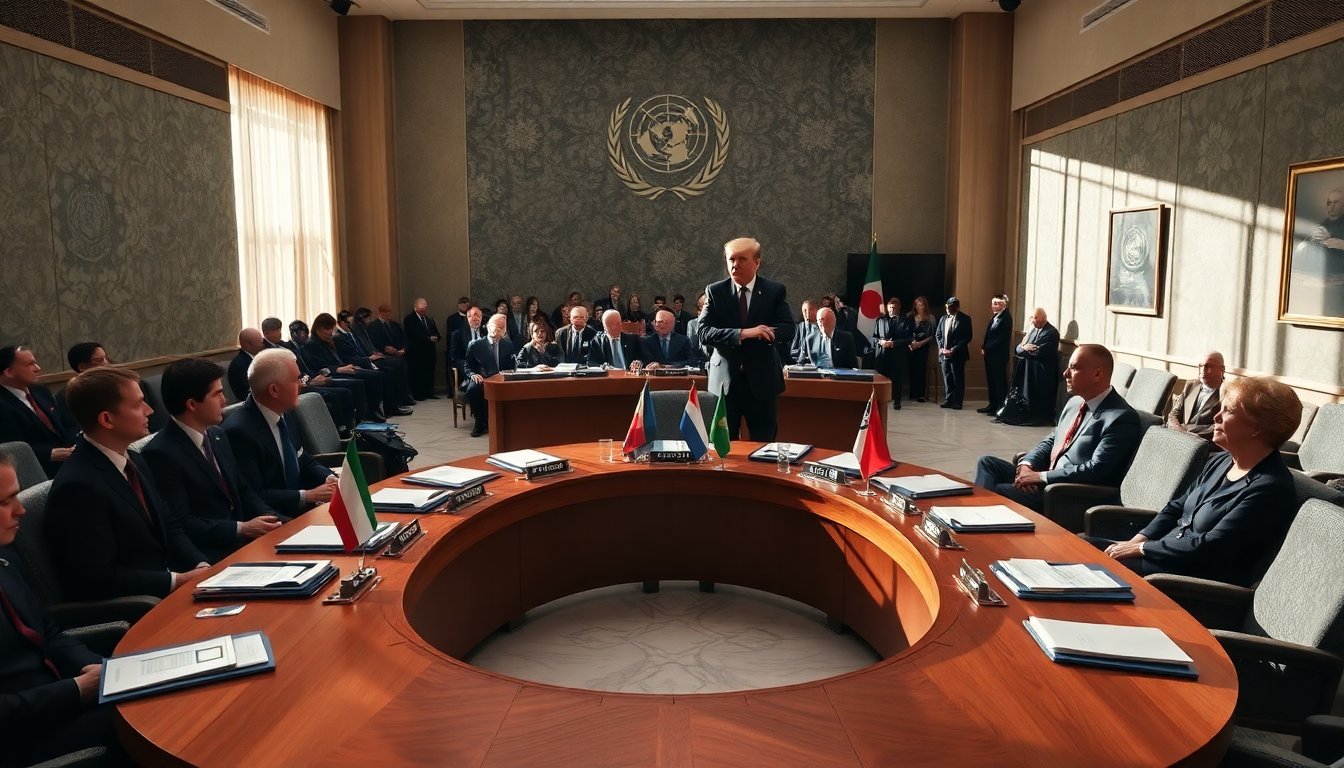Table of Contents
“`html
In a significant development, the United Nations Security Council has approved a peace plan for Gaza put forward by former President Donald Trump. This resolution received support from thirteen member states, while Russia and China chose to abstain. The decision facilitates the deployment of an international force aimed at stabilizing the region. This approval is considered a vital step toward mobilizing global resources and support for the troubled enclave.
The backdrop to this vote highlights the ongoing tensions in Gaza, where violence and humanitarian crises have persisted for decades. Trump’s initiative seeks to initiate a new phase in the Israeli-Palestinian conflict, aiming for a durable resolution that has been elusive in past efforts. With backing from key nations and organizations, the endorsement of this plan symbolizes hope for a more peaceful future.
Details of the peace plan
The resolution presents a comprehensive strategy aimed at achieving peace in Gaza. A key component is the establishment of a Board of Peace, which will govern the region until the conclusion of its mandate. This board, chaired by Trump, is expected to include prominent global leaders. This inclusion aims to bolster the legitimacy and effectiveness of the peace efforts. The primary objective is to facilitate the disarmament of Hamas and to create a stable and secure environment for the Palestinian population.
International force deployment
Among the pivotal elements of the plan is the authorization of an international stabilization force. This contingent, primarily composed of Muslim-majority nations, will be tasked with ensuring the demilitarization of Gaza, which includes dismantling military infrastructure utilized by Hamas. The presence of this force is seen as a necessary measure to prevent further escalations of violence and to foster an atmosphere conducive to negotiations.
The resolution’s passage was strategically timed, occurring amidst a backdrop of diplomatic maneuvering among council members. Mike Waltz, the U.S. ambassador to the UN, characterized the vote as historic, asserting that it marks a significant achievement in U.S. foreign policy. By aligning with key Arab nations such as Qatar, Egypt, and Saudi Arabia, the U.S. has reinforced its position in the Middle East and enhanced the prospects of the peace plan.
Challenges ahead
Challenges persist despite optimism regarding the resolution. Critics from both the Israeli and Palestinian sides have voiced strong opposition. Leaders from Hamas have condemned the resolution, perceiving it as a step toward foreign control over Palestinian territories. They argue that the focus on demilitarization undermines their right to resist occupation and defend sovereignty.
Responses from Israel and Palestine
Israeli Prime Minister Benyamin Netanyahu has reaffirmed his government’s opposition to the establishment of a Palestinian state, asserting that Israel will take necessary actions to ensure Gaza’s disarmament. The political atmosphere in Israel remains tense, with right-wing factions urging the government to adopt a more hardline stance. Protests have also erupted in various Israeli towns, highlighting a divided public opinion regarding the peace process.
The resolution presents a potential turning point for the Palestinian Authority, depending on successful reforms and reconstruction efforts. It underscores that the path to self-determination for Palestinians relies on the Authority’s capacity to implement essential changes and make progress in rebuilding Gaza after the conflict.
Looking ahead
The international community is closely monitoring the implementation of the Gaza peace plan proposed by former President Trump. The success of this initiative could significantly reshape Middle Eastern politics and influence future peace negotiations. Constructive engagement from all stakeholders is crucial, as achieving lasting peace in Gaza involves navigating complex challenges that require dialogue and compromise.
The recent vote signifies a notable shift in diplomatic relations and highlights the continued necessity for collaborative efforts in resolving long-standing conflicts. It remains uncertain whether this new plan will result in meaningful change. However, it clearly represents an important development in the ongoing pursuit of peace in Gaza.
“`


